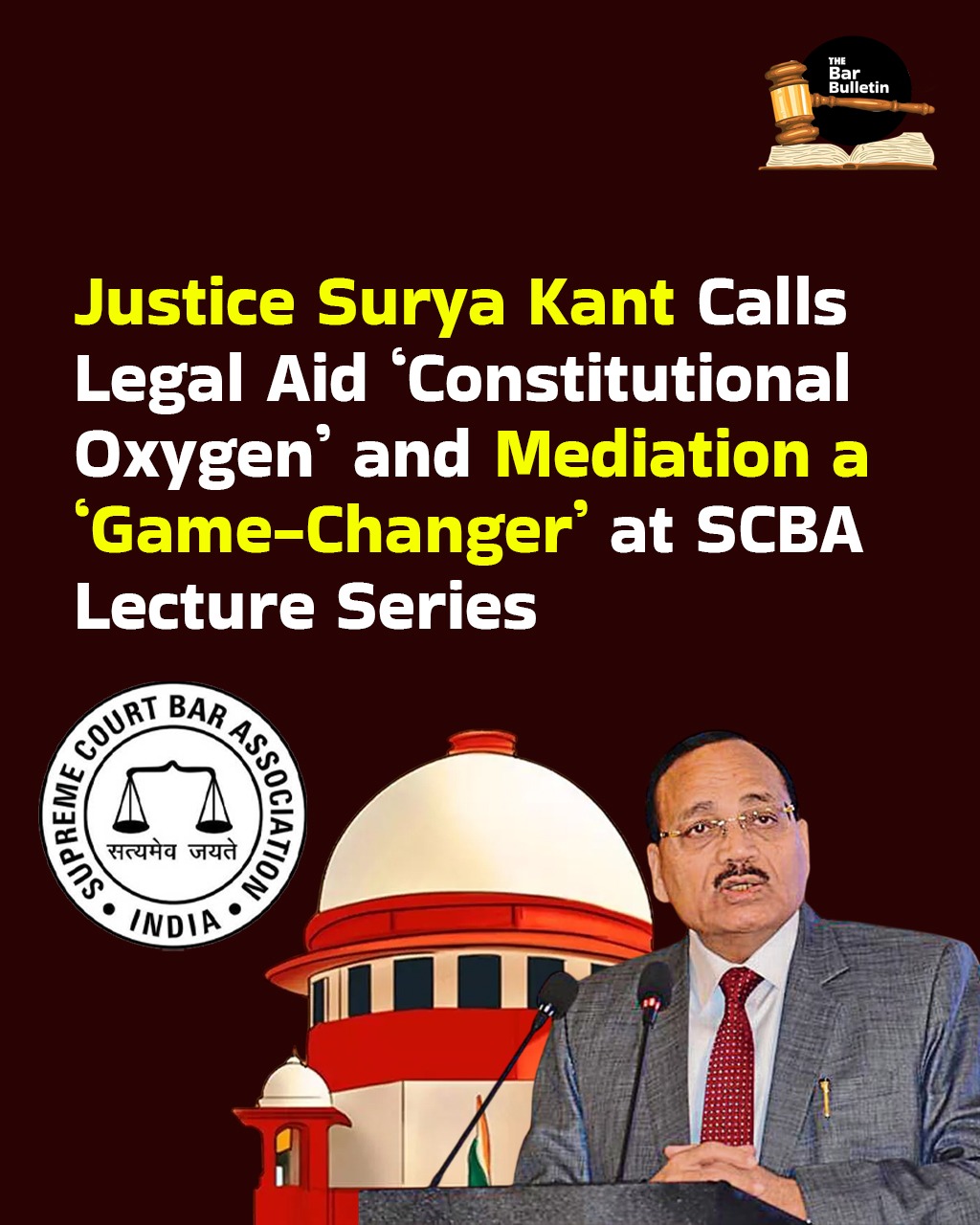At the inaugural session of the Supreme Court Bar Association’s Lecture Series on “Justice for All – Legal Aid and Mediation: The Collaborative Role of Bar and the Bench”, Hon’ble Mr. Justice Surya Kant of the Supreme Court of India underscored that access to justice must never remain a privilege of prosperity. He described legal aid as “constitutional oxygen” essential to the survival of democracy and mediation as the most promising path to address pendency and restore faith in the justice system.
Justice Surya Kant congratulated the SCBA for launching the initiative, calling it a much-needed forum for candid dialogue between the Bar and the Bench. He observed that while India has built “temples of justice,” their doors are often “too narrow for the very people they are meant to serve,” noting that high legal costs, procedural complexity, and intimidating court environments frequently alienate vulnerable litigants.
Reflecting on recent courtroom experiences, he remarked that while senior advocates bring brilliance and mastery to the Bar, their services are often inaccessible to common litigants. He urged members of the Bar, especially senior lawyers, to take on at least two additional pro bono matters a month, emphasising that the Bar’s legacy lies not merely in cases won but in lives transformed.
On the constitutional mandate of legal aid under Article 39A, Justice Surya Kant recalled landmark rulings such as M.H. Hoskot v. State of Maharashtra and Khatri v. State of Bihar, which established free legal aid as integral to Article 21’s guarantee of fair procedure. He also highlighted initiatives such as NALSA’s Veer Parivar Sahayata Yojana for defence families, stressing the importance of targeted institutional support.
Justice Surya Kant recounted inspiring anecdotes of how legal aid had restored dignity to the marginalized from a tribal woman securing her forest rights to an elderly man recovering his life savings. “Legal aid is not charity; it is justice keeping its promise,” he said.
Turning to the issue of case pendency, he cautioned that even the strongest legal aid frameworks lose meaning when justice is delayed. He urged introspection from both Bar and Bench on practices that inadvertently prolong proceedings and reminded judges of their duty to remain conscious of the public trust and resources invested in them.
On mediation, Justice Surya Kant called it a “game-changer,” rooted in Indian civilizational ethos. He noted that the Mediation Act, 2023 had given settlements the force of a court decree, transforming dispute resolution culture. Citing his own experiences—including resolving an international dispute with a German bank through dialogue, he stressed that mediation delivers speed, cost-efficiency, and preserved relationships in ways litigation cannot.
He highlighted the Supreme Court’s ongoing “Mediation for the Nation” campaign, under which 1.68 crore cases have been identified and over 5 lakh disputes referred to mediation between July and August 2025. By 2030, he envisioned dedicated mediation centres in every district, dialogue clauses in all commercial contracts, and citizens resolving disputes through video-based mediation within hours rather than years.
Justice Surya Kant concluded with a reminder that legal aid and mediation are not separate streams but tributaries of the great river of justice. Quoting Mahatma Gandhi, he urged the Bar to “lose itself in the service of justice,” affirming that “our legacy will not be measured by the cases we won, but by the bridges we build—between law and life, between power and compassion, between what is and what ought to be.”

